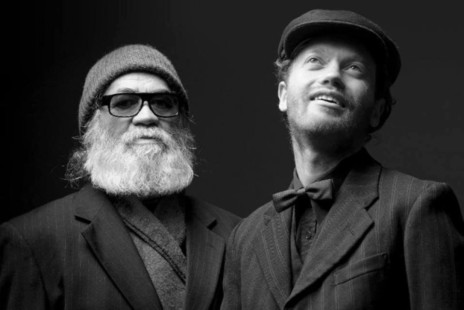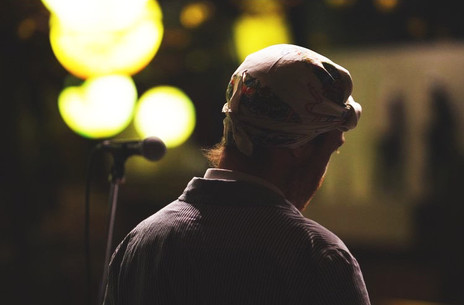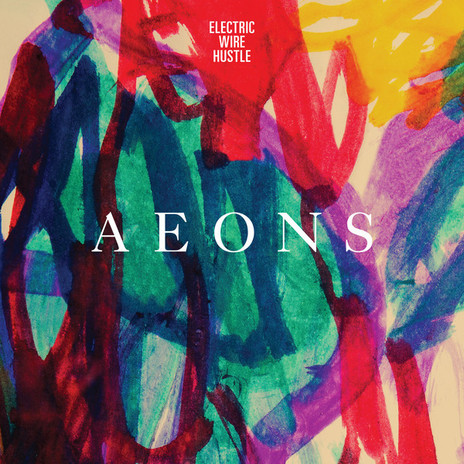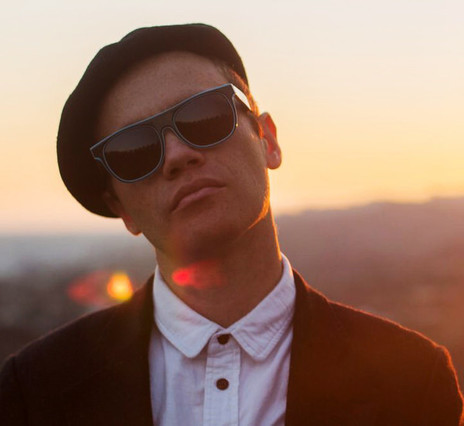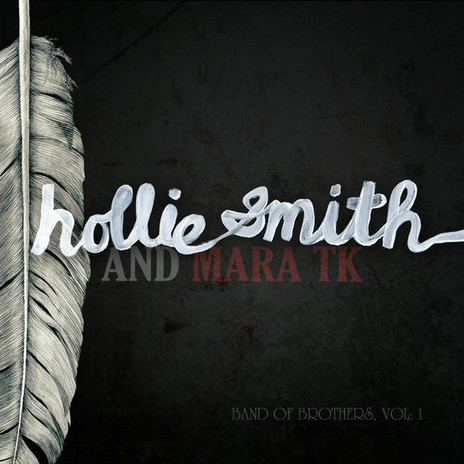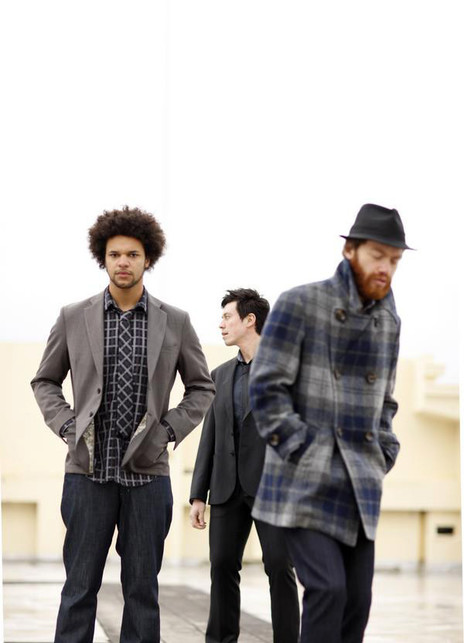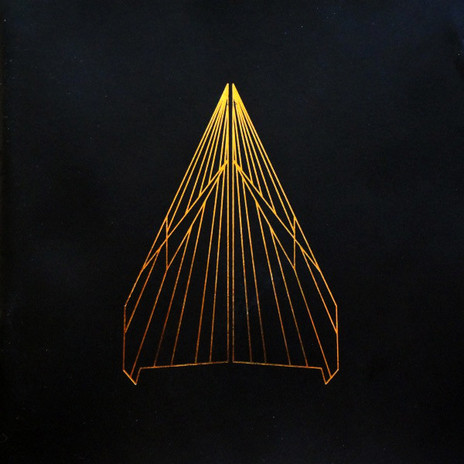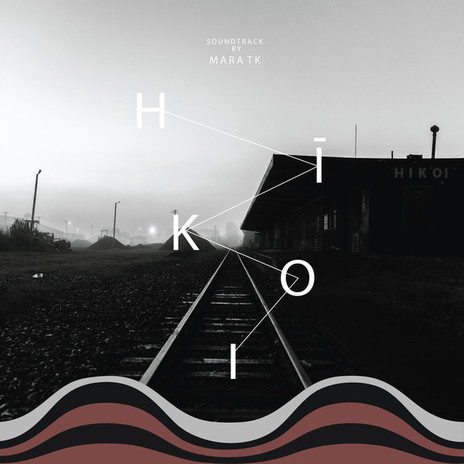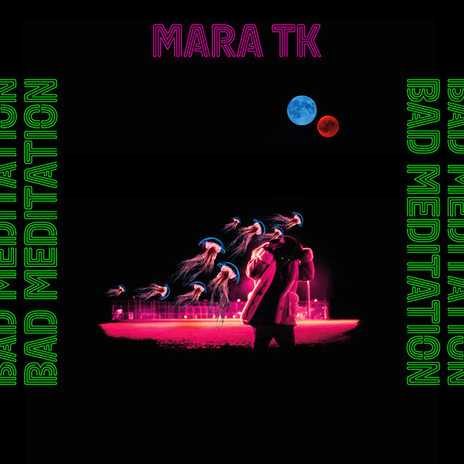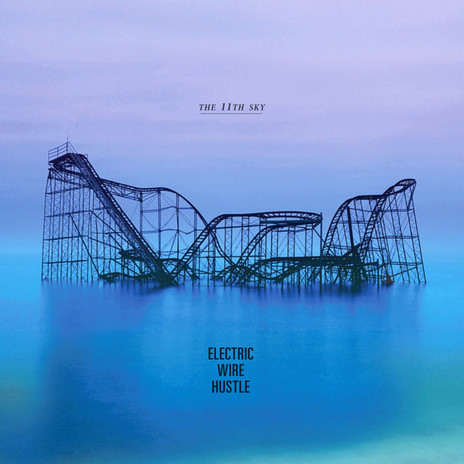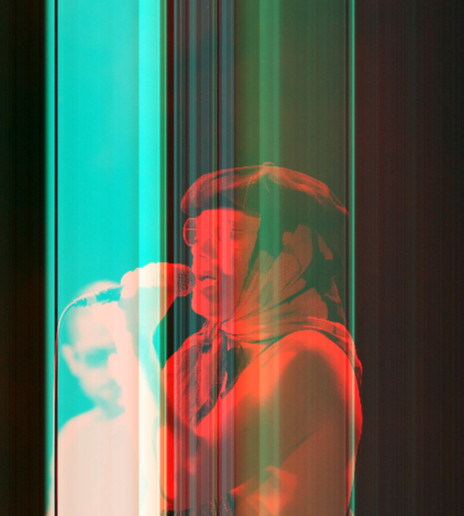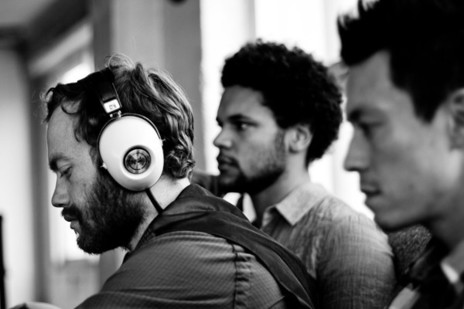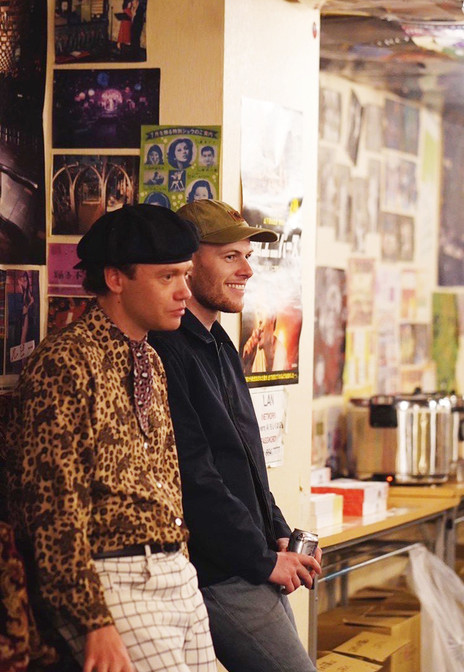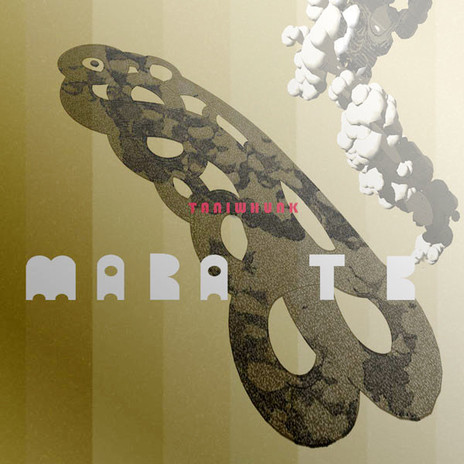Most of his early musical memories were formed on the road.
Billy TK was a touring musician in the 1990s and as Mara says, most of his early musical memories were formed on the road. “We toured throughout my childhood. Some of those tours were pretty interesting. I remember Dad opened for UB40 when they were here, stadium shows like that, or when he hung out with the Neville Brothers when they came and was doing studio sessions with them.”
“I remember sitting in band rooms when I was five. Dad would always give me a shaker or a tambourine and I’d be a participant. I think I was nine when Dad got me my first guitar. He showed me a couple of things, but I was terrible for a few years. I remember both parents asking me to put the guitar away. After a few years, Dad stopped asking me to put the guitar away.
“I didn’t grow up with him 100 percent of the time, but certainly the time we did spend together was intensely musical and I believe that he spent enough time with me to impart his philosophies as a musician and bandleader, and as a producer.”
Mara shifted to Christchurch in the mid-90s and spent his teenage years and early twenties in the city. It was here his passion for hip-hop developed and where his identity as a musician was formed, setting him off in the direction of beat-making and electronically produced music.
“Hip-hop was my first love and I’m always trying to make music using drum machines in the same way 90s hip-hop artists did. J Dilla ended up as a touchstone for me, along with The Roots and D’Angelo. I think hip-hop was our own thing. It was so different from the music of our parents that we had our own relationship with it.
“It was hip-hop that brought me into it and gave me my genuine passion and love for music. I was 17 washing dishes for a job, and I dropped seven grand on a pair of turntables.”
With this, Mara began involving himself in the city’s club culture as a DJ and participating in DJ battles. “P-Money brought me into what he was doing with Scribe and DJ Ali, and then my second cousin is DJ Shan who had things happening with Ali and Scribe and DJ Sir-Vere.”
While in Christchurch, Mara went to jazz school in an attempt to improve his musical skill set and catch up to the musical level of his dad and brother (Billy TK Jr).
“I thought that was what you had to do if you wanted to be a serious musician. I don’t think I had as much natural ability as my dad did and so I was trying to think of ways to catch up to him. That was a way that I thought I might be able to get there.
“The guitar has always been Dad’s voice and my brother’s voice. I couldn’t actually play like them even if I wanted to. So, I guess I just put my energy into different things like singing and producing.”
A chance meeting one New Year’s Eve with David Wright of SolaA fame changed Mara’s life.
After establishing himself within Christchurch’s burgeoning hip-hop scene in the early 2000s as a DJ and beatmaker, a chance meeting one New Year’s Eve with David Wright of Solaa fame changed Mara’s life.
“I might still be living in Christchurch had I not met Dave. I can’t say enough about him and how crucial he has been in my development as a musician and producer. He’s just a really good people person. He introduced himself, I mentioned I was moving to Wellington where he was living, and he said ‘hit me up when you are there’.”
Wright recommended that Mara apply for the Red Bull Music Academy in Toronto. He did and got in, getting to spend time overseas, attending lectures and being mentored by the likes of Ethiopian musician Mulatu Astatke.
“That was a life-changing experience. I had never left the country before. After going to the academy, I figured out which genre I wanted to go in which was this kind of neo-soul thing. I wasn’t that interested in classic sounding guitars and classic sounding drums; I didn’t want to remake classic soul music. That came from Red Bull.”
Electric Wire Hustle was born during this time, with Mara teaming up with Wright and Myele Manzanza to put his neo-soul vision into action.
Mara and Wright co-wrote and produced the music and their self-titled 2009 debut album was met with rave reviews both locally and overseas, even catching the eye of top DJs Gilles Peterson and Benji B, the latter naming their tune ‘Chaser’ as a top track of 2009.
More success came with 2013’s Love Can Prevail. The album received rave reviews in the New York Times which called it “darkly enthralling”, while OkayPlayer called the album the “best electronica album of the year”.
Love Can Prevail then went on to earn the group a Taite Prize nomination and best electronica album prize at the New Zealand Music Awards in 2015.
It was through this success that Electric Wire Hustle were able to tour overseas, something they constantly did through their near 10-year existence. The group played in over 20 countries across Asia, Europe and the United States, something Mara looks back on fondly.
“I had a young family around that time, so I always felt pulled between the two, but I am so thankful for that time overseas. It just shapes your perspective on other human beings and cultures. One of the biggest privileges you can have is to travel.”
At the same time as his group was having success, Mara realised his ability as a vocalist could be put to good use elsewhere. This led to him becoming an in-demand vocal collaborator in the New Zealand music scene, something that still exists to this day.
The list of names Mara has played with is endless and includes Hollie Smith, Lord Echo, Troy Kingi, Fly My Pretties, Julien Dyne, Tom Scott and Pacific Heights.
Albums he has played on include: Smith’s Band of Brothers, Vol. 1, Kingi’s Shake That Skinny Ass All the Way to Zygertron and Scott’s award-winning Avantdale Bowling Club album. Mara puts this down to him not being able to say no to people, amongst other things.
“I have always been absolutely Huckleberry-like. If there is someone who is like ‘let’s sail down this river right now’, even if the raft has got holes in it, I will jump on. It hasn’t always been a good trait, but it does make you a lot of friends. I have always been like that, keen for a jam or keen for a road trip, or keen to come over and see what people are doing in the studio.”
By 2016, Mara was the last man standing in Electric Wire Hustle.
“As well as that, when you are a vocalist people are always looking for people to complement their music, so it becomes easy to make friends. I am thankful for all of those people who hit me up because I feel like I have gained a lot of good relationships with people through music.”
By 2016, long-time companion David Wright had left the group and Mara was the last man standing in Electric Wire Hustle. He managed to record one more album, The 11th Sky, before calling it a day.
“It was a natural ending. Dave always held down a full-time job, the whole way through. Just at a certain point, he had to go, so that was his choice. After that, I was at the helm by myself, running the whole ship for about 18 months.”
Mara began thinking about the possibility of a solo career and life after Electric Wire Hustle. “I just started to ask myself, what do people know about you? They kind of know what Electric Wire Hustle is and what it is trying to do, but what do people know about you and your background and which influences you are trying to use? So, I started to wonder if a solo album would be the next step.”
Mara was already writing songs that for him felt outside the confines of Electric Wire Hustle, and this is where the story of his first solo record, 2021’s Bad Meditation, begins.
“These songs would have happened in any case. But putting them into a solo album made sense after I finished Electric Wire Hustle.”
Mara spent the next five years recording Bad Meditation using a bunch of old studio equipment he bought from a friend. Recorded mostly at his home, he had to teach himself how to record and mix as he had spent his entire recording budget on equipment.
In what was stylistically a mix of psychedelic soul and spacey R&B, Mara recorded somewhere between 50 and 60 tracks for the album, but minimised the number of people he enlisted to work with him in a move that truly embraced the solo artist aesthetic.
“I guess I have realised I am probably a bit of a control freak when it comes to music. I restricted the number of collaborators on that record, I only really collaborated with Corey Champion. The rest were like cameo parts.
‘Te Kete Aronui’ was a finalist for the 2019 APRA Maioha Award.
“Being a solo artist has its pros and cons because there is no one else to pick up the slack. It can get pretty lonely if there is nobody else. But then on the other side, if you have a vision, that vision is all yours to create and change as it goes.”
One of the songs included on Bad Meditation is ‘Te Kete Aronui’, a co-write between Mara TK and Corey Champion. The song was a finalist for the 2019 APRA Maioha Award.
The album is significant for Mara in many ways but especially as it was the first time he properly introduced te reo Māori to his music, after the death of his koro saw him heavily embrace his Māoritanga and reflect on his Māori heritage.
“It was something I had been wanting to do for years but it wasn’t quite there. I have been able to speak the language for a long time but was never confident enough to write songs in the language just because of what that entails.”
“It is a challenge but to be fair not many languages use as many proverbs and turns of phrase as Māori, so there is a lot there to draw on. I am happy to say it will be a regular part of what I do moving forward, because after a lifetime trying to learn the language, I am finally just comfortable with it.”
‘Bad Meditation’ reached No.15 on the New Zealand Album Chart.
Initially a digital release, Bad Meditation reached No.15 on the New Zealand Album Chart despite there being very little mainstream media attention. It enthralled long-time fans and brought in new listeners.
This fact surprised Mara, who had been trying to get out of the music industry prior to Bad Meditation’s release.
“I was trying to get out of the game just because I had been in it for so long. I didn’t know what was there for me anymore, even if there was an audience for me there. People have kind of brought me back in with this record, so it has been quite a surprise and humbling in a funny way.
“Put it this way, maybe I have got one more album in me. I will be making music regardless.”
Outside of his own music, Mara has been on a journey of giving back to the community and is involved in many different initiatives involving music and young people.
“I am trying to do more youth work with organisations like Ka Hao which is an organisation Rob Ruha runs with his wife. They have a collective of about 30 young people from the east coast; we have been making an album together and running workshops.”
He has also started Meetinghouse Records in Wellington as a pathway for indigenous artists to release music. “Meetinghouse only exists for the purpose of connecting people, and of course making and releasing music that has spiritual and cultural heft. So, I just want to do a few more things like that and any other kaupapa things that people have got happening. My main ambition is for myself and my contemporaries to make amazing records that future generations will listen to, be inspired by and even give them a sense of direction.”
